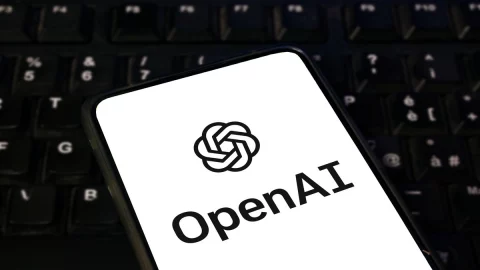The billionaire world of domestic hi-tech is in crisis due to the collapse in consumption, which in some sectors and in some countries is really worrying. GFK communicated, on the occasion of IFA, Internationale Funkausstellung in Berlin which closes on Wednesday 11th, that, with the exception of the North American market, after years of growth, total world sales have come to a halt, with a forecast of a decrease – very light, but unexpected – by about 0,2% for the end of the year. And, for the first time, e-commerce also stops especially in China and Germany. Very bad sign. However, the drop in purchases in the first six months of the year in China in very heavy segments is worrying: -6,2 percent for Majap against +2,7 percent worldwide, a further drop for smartphones after two years of double-digit drops, and -12 percent for TV against a total -2.
NEWS INCREASINGLY PRESENTED DURING THE YEAR
It's not just the market data that leaves retailers and manufacturers worried, especially for China's slowdown, even the gigantic exhibition hall like this one – the oldest in the world – suffers like its American rival in Las Vegas, CES, Consumer Electronics Show, of a gigantism that on the one hand forces us to expand the product categories to include cars and components. And from another it has determined the budding of formats in Asia and the Middle East. Finally, a fact that increasingly worries the organizers of many specialized fairs (with the exception of the Salone del Mobile in Milan): during the year the presentations of the new companies multiply and products often arrive at fairs when they are already on sale in stores.
Or, as happens with TVs and the smart home, companies continue to present improbable innovations for years, useless anticipations of phantom products. All this fills the chronicles of blogs with sparkling nothing but does not inform. As for the trends – the real ones – the artificial intelligence even instilled in whisks or hair dryers is further affirming itself. Voice assistants (Amazon Alexa first of all, remotely the others) are now available in almost all devices, from the dishwasher to the video camera, from the washing machine to the robot vacuum cleaner, from the dry cleaner's closet to the TV and smartphone.
All this allows you to easily use rather complicated computer devices with your voice. The voice therefore instead of displays, Apps, knobs and touch screens. Domestic devices wash, transmit programs, cook, cool, clean, play, speak and even spy on the user and perhaps even transmit, without his knowledge, confidential data to large distribution chains and technology multinationals.
LUXURY YES, BUT WHAT WORKS
Luxury, everywhere; GFK underlined in its rich report communicated on the occasion of IFA, that the only segments in constant growth are those of the high-end, from 4K TVs (but 8K are also arriving), from 5G foldable smartphones to small wireless, "magnetic" appliances , ultra-refined, to oxygen extractors that quadruple the duration of food, to induction hobs that weigh, look at food and work as assistant cooks. And they interact with the fridge, choosing the recipe based on what's left inside. No, we are not yet at the reading of the labels as some companies promise, but to a general improvement that makes each device autonomous, thinking, communicating and interactive.
TVs that roll up? They were unrolled before the visitors, again magnified with hymns of glory then re-rolled and put away for next presentation. What about wall-sized TVs? An unlikely delight. What about the transparent ones? Impossible as costs. And all the flood of amazing wearable TVs, PCs and smartphones? Non-existent or unreliable products, unattractive sales. And 8K technology also offers – at high costs that will remain the same – a quality superior to 4K but honestly very little perceivable in the living room. And perceivable, but barely, only when 4K TVs and 8K TVs are compared in the stands.
WHO WINS IN HI TECH?
The Chinese. Haier alone is worth a third of the IFA, due to the large parade of luxury and historic brands absorbed in recent years and most recently Candy with its Hoover and Candy brands. A parade of unique prominence and highlights with a real, complete and proven smart home platform with related services, an unattainable variety of – real – proposals for all segments of the market but with a common sharing of highly compatible, open, simple to use technologies. Production specialization no longer counts: Artificial Intelligence and voice connect all devices, mobile, immovable, in the car and in the stock exchange, with each other, with the user, with his car and remotely.
Besides the Chinese, the GPSs win, which with geolocation certainly help to have tailor-made TV programs, preservation and cooking suitable for humidity, washing and drying based on the weather. But they just as surely open the car, the house and the office and even the garden to the ever more evil hackers. While the big names in distribution and multinationals are refining the inclusion of GPS and invisible and not easily traceable sensors to capture the most hidden desires and habits of users.
On the other hand, the information that should, in the face of a myriad of proposals, provide the consumer with useful tools for an informed choice, does not win. Sorry to see for example the hermetic, rigid communication of Chinese companies. Journalists who dare to inform without even adhering to press releases, often closer to propaganda than to information, are not welcome. CThus we see flocks of embedded journalists, on (paid) press trips following the companies, engaged in heaps of enthusiasm that is not always justified.




